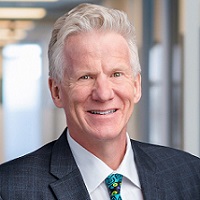 By Nick van Terheyden aka Dr Nick, Principal, ECG Management Consulting
By Nick van Terheyden aka Dr Nick, Principal, ECG Management Consulting
Twitter: @drnic1
Host of Healthcare Upside Down – #HCupsidedown
The quality of healthcare varies widely throughout the world. Even in the United States, there’s evidence that a person’s zip code may be more relevant to their health and life expectancy than their genetic code.
But such differences conceal even more troubling insights that transcend income, discrimination, and racial lines. Waste permeates our system—to the tune of one-third of the $4.1 trillion we spend on healthcare in the US.
Episode NOW on Demand
Think about that for a second. If waste accounts for a third of healthcare expenditures, that’s $1 trillion. Imagine what we could do if we spent that money on actual, necessary care.
It would be one thing if all that additional spending translated into better outcomes, but based on the standard metrics of quality of care, it does not. Data shows that if you live in a high-spending area of healthcare, you get more frequent tests and procedures, visit with more specialists, and spend more time in hospitals. But when measured against matched cohorts of people with similar diseases and health profiles, patients in high-spending areas do no better than patients who live in areas with less medical care being delivered.
Dr. Elliott Fisher is one of the original architects of accountable care organizations (ACOs). He joins me on this episode to talk about variation and waste in healthcare, the need to move away from fee-for-service, and how achieving alignment on payment models can benefit everyone in healthcare—patients especially. Here are a few excerpts.
More care doesn’t mean better care.
“When you look across US regions, and this is what we did in the early 1990s, we found that there are some regions where there’s basically a twofold difference in per capita spending—twice as much money spent for Medicare beneficiaries in high-spending regions compared to low-spending regions. People in the high-spending regions are spending 60% more patient days in the hospital and seeing almost twice as many specialists per person. What our early work revealed was that the people in the high-spending regions were not getting any benefit from that additional treatment. Quality, health outcomes, and patient experience were no better. That cracked a widely held assumption that more medical care is always better and revealed that there’s about 30% of healthcare spending that’s being wasted on unnecessary stuff.”
Fee-for-service contributes to waste.
“The way hospitals are paid under fee-for-service, they have to keep their beds full. We train hospital leaders how to generate revenue, and the way you do that is by having your physicians fully occupied and your beds fully full. And what we see is that the combination of the numbers of physicians per capita and beds per capita explains more than half of the variation in US spending across regions. The opportunities to do better are just pervasive.”
Better incentives, better care.
“It’s really got to be about changing the incentives so that physicians and the systems that support them can deliver the best possible care in the least expensive way. Some places have started to say, ‘how can we invent better ways of caring for our patients with chronic illness?’ The old way, under fee-for-service, was for a patient see a specialist for every single thing they needed. One patient that was described to me had cystic fibrosis and had a lung transplant, and she was experiencing 200 contacts with the healthcare system in a given year, most of them in person. But with a good chronic care manager, a nurse who could help her navigate and do the talking with the specialists, she went to fewer than 10 contacts a year. She was given her life back. So you can deliver great care in innovative ways, but without the burden that’s imposed by this relentless fee-for-service system that has us on the treadmill of keeping the hospitals full.”
About the Show
The US spends more on healthcare per capita than any other country on the planet. So why don’t we have superior outcomes? Why haven’t the principles of capitalism prevailed? And why do American consumers have so much trouble accessing and paying for healthcare? Dive into these and other issues on Healthcare Upside/Down with ECG principal Dr. Nick van Terheyden and guest panelists as they discuss the upsides and downsides of healthcare in the US, and how to make the system work for everyone.
This article was originally published on the ECG Management Consulting blog and is republished here with permission.
